Genetic Literacy Project
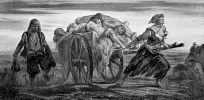
‘The single most notorious killer of humans’: What are the true origins of the 14th century Black Plague?
It’s rare that compelling clues converge to illuminate a longstanding medical mystery: the origin of the Black Death, a bubonic ...

Pesticides and Food: It’s not a black or white issue — How do organic pesticides compare to synthetic pesticides?
Many consumers choose to buy higher-priced organic produce because they believe organic foods are not grown using pesticides and therefore ...
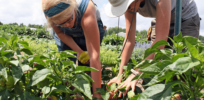
Viewpoint: Outdated organic technology? By rejecting gene editing, growers left with more disease-prone, pest-infested crops
East Yorks mixed farmer Paul Temple suggests that in closing its mind to new genetic technologies, the organic sector may ...

GLP podcast and video: Hawaii’s wildfires explained; Why more young people are getting cancer; Aspartame hysteria could boost sugar intake
Invasive grasses are the key to unraveling the cause of Hawaii's devastating wildfires, according to a local expert examining the ...

Mask up again? As COVID cases rise, look to science and not pundits
I can’t believe we’re having this discussion in September 2023, just as the fall respiratory virus season commences, but the ...
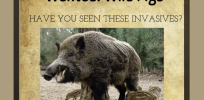
Social justice environmental activists move to block gene editing to control invasive species and promote biodiversity. Here’s why they’re misguided
Hawaii has emerged as ground zero for efforts to raise the awareness of the dangers of invasive species. Just last ...

Science vs spirituality: The case of the severed head
There’s a ghastly severed head in St Robert’s Roman Catholic church, just down the road from me in Catforth, northern ...

Viewpoint: ‘Garbage in, garbage out’ — How AI is already skewing news coverage of complicated science issues like the safety of glyphosate
Here's a great example of how bad reporting and the war on glyphosate play hand-in-hand. I don't know anything about ...

Viewpoint: ‘Public fixation on human extinction from AI could distract from AI’s more immediate harms’
A public fixation on extinction from AI could empower industry insiders and distract from AI’s more immediate harms ...
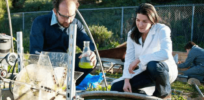
Reduce synthetic fertilizers and improve yields? The microbiome revolution comes to agriculture
If manipulated correctly, they can help us cure cancer, understand how we can adapt to rising temperatures, play a role ...

Viewpoint: AI is evolving too fast for existing regulatory frameworks to keep pace. Here’s a possible solution
AI is evolving too fast for existing regulatory frameworks to keep pace. Intellectual property law may hold a solution ...
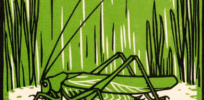
Grasshoppers under siege: Here’s how climate change depletes insect populations and threatens the global food supply
It’s tough out there for a hungry grasshopper on the Kansas prairie. Oh, there’s plenty of grass to eat, but ...

Sequestering carbon on a gigaton scale: How gene editing can address climate change by reducing atmospheric emissions
Hardly a day goes by without another piece praising the potential for gene editing to help solve climate change. Nevertheless, the possible contributions of biology and biotechnology have been conspicuously ...

GLP podcast and video: Curing deadly diseases with mRNA; COVID killed more Republicans than Democrats? WaPo promotes ‘acupuncture pseudoscience’
The same technology behind the mRNA COVID shots could also yield groundbreaking treatments for wide-ranging diseases. A new study posits ...

First synthetic human embryo to live past 14 days was made from stem cells
A Cambridge University scientist says her research lab has used stem cells to create a human embryo that developed past ...
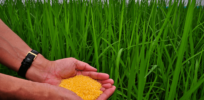
Viewpoint: From ‘Save the Whales’ to ‘Let Children Go Blind’ — Greenpeace’s descent into science rejectionism
From the early days of Greenpeace when its members were dodging harpoons and Japanese whalers in outboard motor boats – ...
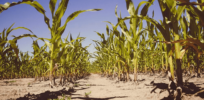
Green transition: How agriculture can drive climate change solutions
It is widely recognized that we must transition our energy economies to a greener, more sustainable state. This will only happen ...

We could use CRISPR to cure mental illness. Should we?
Would you want to be cured of a disorder that most people consider debilitating if given the opportunity? Cancer? Sure ...
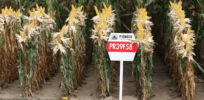
Insect-resistant Bt GMO crops have helped cut pesticide use. Now Nature is pushing back
In 2006, a small airplane started buzzing each cotton field in Arizona, a thin, dust-like cloud trailing behind it. The ...

Can OpenAI prevent vaccine conspiracy theories from bubbling up in ChatGPT conversations?
The chatbot has some guardrails in place to curb disinformation, but it’ll be a game of constant catch-up ...

Pesticides and Food: It’s not a black or white issue — Part 5: Soil health ― When synthetic pesticides are more sustainable than ‘natural’ organics
Most consumers believe organic farming avoids pesticides and prioritizes the health of the environment more than conventional farming. However, this ...

GLP Podcast/Video: Cell phones and cancer; Do you need a COVID booster? The case for/against eating bugs
There's no evidence that cell phone use causes brain cancer, so why do so many people, some scientists included, believe ...

Viewpoint: What role can and should genetics play in understanding which people might become violent and commit crimes — and putting them in jail?
Using biology to understand criminal behavior has long been controversial. Top criminology programs are pursuing it anyway ...

Viewpoint: Scotland’s Green Party leads an “obstinate and visionless” opposition to sustainable gene edited crops while UK and Europe edge towards embracing agricultural science
In recent months, the pace of global policy developments in relation to gene editing has often been hard to keep ...
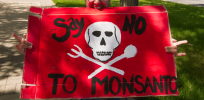
Viewpoint: How to restore public trust and regulatory fairness in the face of aggressive, coordinated disinformation efforts by anti-technology environmental activists
During my lifetime, Western societies have enjoyed innovations that have immensely improved public health and the quality of life as ...
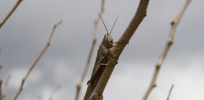
Why we overeat — and how studying voracious locusts may help us learn to curtail a dangerous human vice
This story starts in an unusual place for an article about human nutrition: a cramped, humid and hot room somewhere ...

During the COVID pandemic, Republicans in Ohio and Florida had a higher mortality rate than Democrats
A study confined to COVID deaths in Florida and Ohio suggests that the Grim Reaper’s “excess” deaths, when stratified by ...

Training our taste buds: How genes and diet shape our food preferences
Have you ever wondered why only hummingbirds sip nectar from feeders? Unlike sparrows, finches and most other birds, hummingbirds can taste ...

